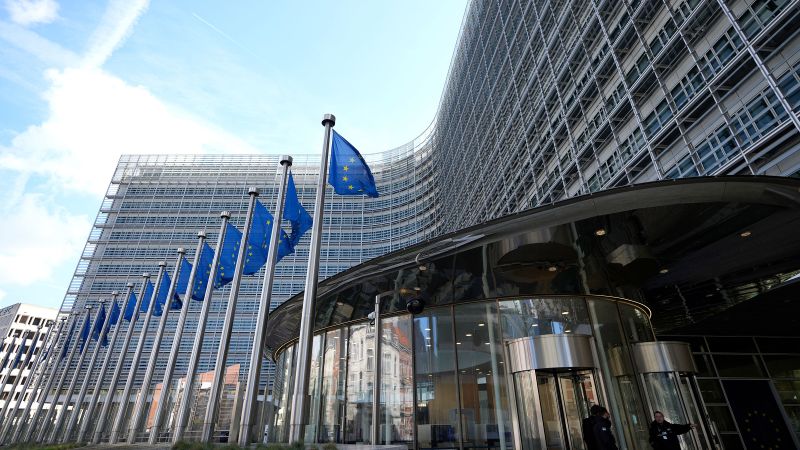In a significant enforcement action, the European Union (EU) has levied substantial fines against two major American tech companies, Apple and Meta, amounting to a staggering €700 million (approximately $797 million). This action marks the first application of the EU’s ambitious Digital Markets Act, which is designed to regulate monopolistic practices and ensure fair competition within the tech industry. The fines represent a clear demonstration of the EU’s commitment to holding powerful digital corporations accountable for their business practices, while also signaling a shift in the dynamics of international trade and regulation in the digital realm.
The penalties imposed on Apple and Meta stem from violations of the Digital Markets Act, which has drawn scrutiny and criticism from various quarters, particularly from the Trump administration. The former U.S. government has accused the EU of unfairly targeting American companies, suggesting that such regulatory actions could undermine the competitive position of U.S. firms in the global market. The fines applied to these companies will undoubtedly have ripple effects, not just within the tech industry, but across various sectors, as businesses begin to navigate the new regulatory landscape established by the EU.
Specifically, the European Commission, which serves as the executive body of the EU, announced on Wednesday that it imposed a fine of €500 million (approximately $570 million) on Apple Inc. (AAPL), while Meta Platforms Inc. (META), the parent company of Facebook, faced a fine of €200 million (around $228 million). The European Commission’s decision indicates that it is serious about enforcing the provisions set forth in the Digital Markets Act, which aims to prevent anti-competitive practices and promote a fairer market environment. Regulators in Europe have become increasingly vigilant in their oversight of U.S. tech companies, viewing them as dominant players that require stringent regulation to ensure consumer protection and to foster competition.
The imposition of these fines comes at a pivotal moment in the ongoing dialogue between the EU and the United States regarding digital governance and market practices. While the EU has emphasized the importance of establishing a fair and competitive marketplace, critics argue that the enforcement of such laws may disproportionately impact American firms, potentially stifling innovation and creating barriers to entry for new technologies. As international tensions over trade and regulation continue to evolve, these fines represent more than mere penalties—they encapsulate the growing complexity of navigating global markets in the face of diverse legal frameworks and regulatory philosophies.
Looking ahead, this developing situation could lead to further legal battles and negotiations between the EU and major tech platforms as companies respond to these penalties. Many industry observers anticipate that Apple and Meta may seek to contest their fines, potentially laying the groundwork for a drawn-out legal dispute that will hinge on the interpretation and application of the Digital Markets Act. The outcomes of these discussions will likely have a lasting impact on how tech giants operate within Europe and may set precedents for regulatory practices in other jurisdictions around the world.
As this story unfolds, it remains essential to monitor the changes and developments related to these fines and the broader implications of the Digital Markets Act. Reports note that James Frater has contributed valuable insights and any updates to this situation will continue to shed light on how regulations are shaping the future of the digital economy, potentially influencing the global competitive landscape as well. Given the significance of these fines and the responses they elicit, the European Union could set new standards for how tech firms engage in business across borders, ushering in an era characterized by stricter regulatory scrutiny and enforcement practices.



